FORT KNOX, Ky. -- In the Army's vast tureen of alphabet soup, few acronyms are more important than ROTC and LTC.
The Reserve Officers Training Corps is a program for young people who are still in college. Students incur a service obligation to the Army. More than 60 percent of all Army second lieutenants are generated through the ROTC programs, more than the Officer Candidate School and the U.S. Military Academy at West Point combined.
While some college freshmen have already charted their military career paths, others take longer to decide. The Leadership Training Course is for sophomores who have become interested in the Army, but have already completed two years of college.
LTC is essentially a concentrated summer camp that allows cadets to sample Army life while leaders gauge which participants have leadership potential. Once the month-long course is completed, LTC graduates qualify for senior ROTC programs at their colleges and ultimate commissioning as Army officers.
The only place students can take ROTC's crash course-LTC-is at Fort Knox. This summer, more than 1,500 cadets are expected to train with LTC.
Cadet Command, which operates the course, invited media to take a peek Friday at one of the LTC courses.
The two challenges on the cadets' training agenda for the day were the courses known as Where Eagles Dare, a climbing complex, and Call of the Wild, which is water-training on a lake.
The climbing course included a climbing wall, Jacob's ladder-a high altitude obstacle course-and a high ropes challenge. Each required cadets to test their physical strength and balance while developing teamwork and fostering trust, because they had to rely on their buddies who manned the safety harnesses to keep them from danger.
For some, the first obstacle and hardest to overcome was fear-fears of heights or water were common.
"We push them out of their comfort zones," said Lt. Col. Robert Familetti, the Cadet Command's training chief. "For some cadets, that happens as soon as they get to the (training) site."
Call of the Wild is a water challenge requiring a platoon of nine cadets to carry a 150-pound Zodiac raft over their heads. Two platoons race to complete the course marked by buoys across the lake. Once the cadets reach the launching site they board the raft, paddle it to the first turn, then capsize the raft and right it-a task they must complete three times at different points on the route-then race to the landing beach where they must again high carry the raft another 20 yards to the finish line.
While capsizing actually looked like fun, righting the raft to its correct position and getting back into the raft was a challenge for many. Often, cadets had to snatch their fellow platoon members by the life jackets and haul them aboard rather unceremoniously. It was more work than it looked at first glance.
"At graduation, we see real pride reflected in their eyes," Familetti said.
Col. David Hubner, commander of LTC and the 1st Brigade, said the course strives to give cadets a taste of the real Army by putting them in stressful scenarios while emphasizing teamwork and leadership skills.
"This isn't basic training," Hubner said. "We're looking for growth."
While most classes see
70 percent of the cadets commit to Army careers, there's no regret over those who don't choose the Army lifestyle.
"Students obtain skills that they can apply not only in a military career but also in the civilian world-time management, organization, and self-discipline," Hubner said. "Even if they don't contract to the Army but go on to be mayors or business owners, they will be leaders who understand the Army and its mission."
One feature that was constant throughout the day's program was the support the cadets offered each other. Calls such as "You can do it," or "Don't quit now; you're almost there," "Good for you!" rang out frequently. No disparaging remarks were evident.
First Brigade Command Sgt. Maj. Charles Greene said that attitude fostered at LTC is all about a lifestyle change.
"Even when they're doing land navigation and out in the woods with mosquitos and heat, they will still be encouraging each other," Greene said. "They gradually shift from waking up each morning and wondering if they will make it through the day to waking up and wondering if their battle buddy will make it, too.
"We're very proud of this program."

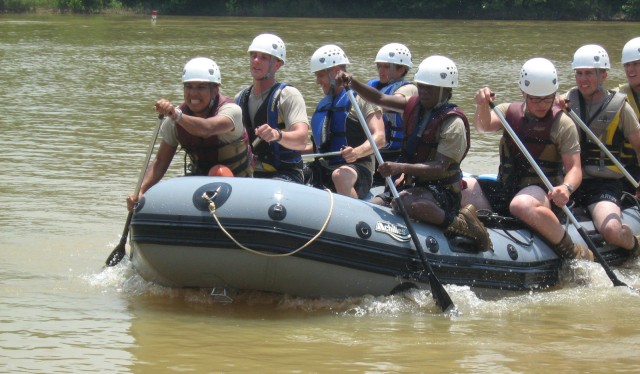

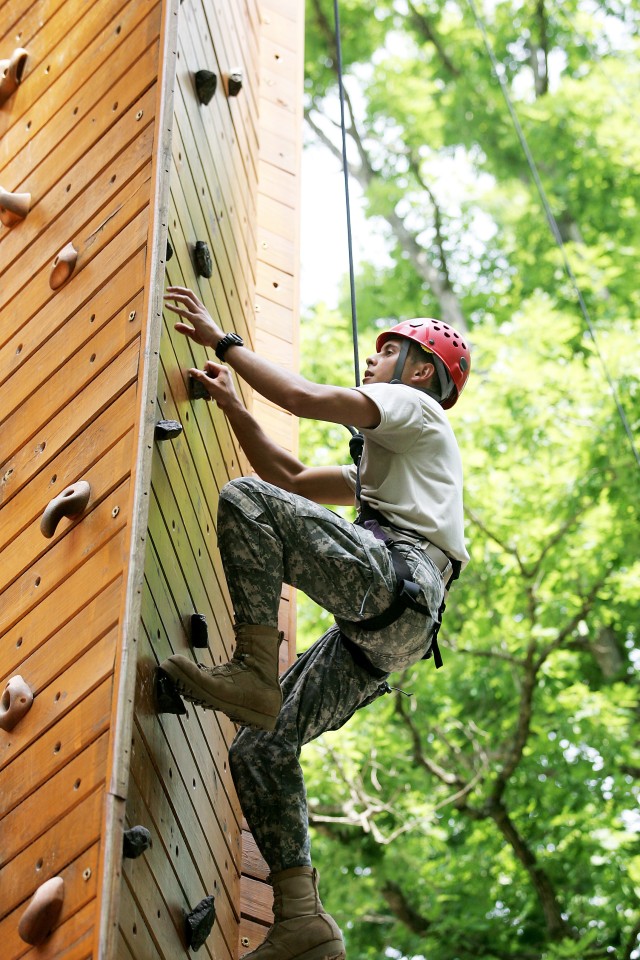



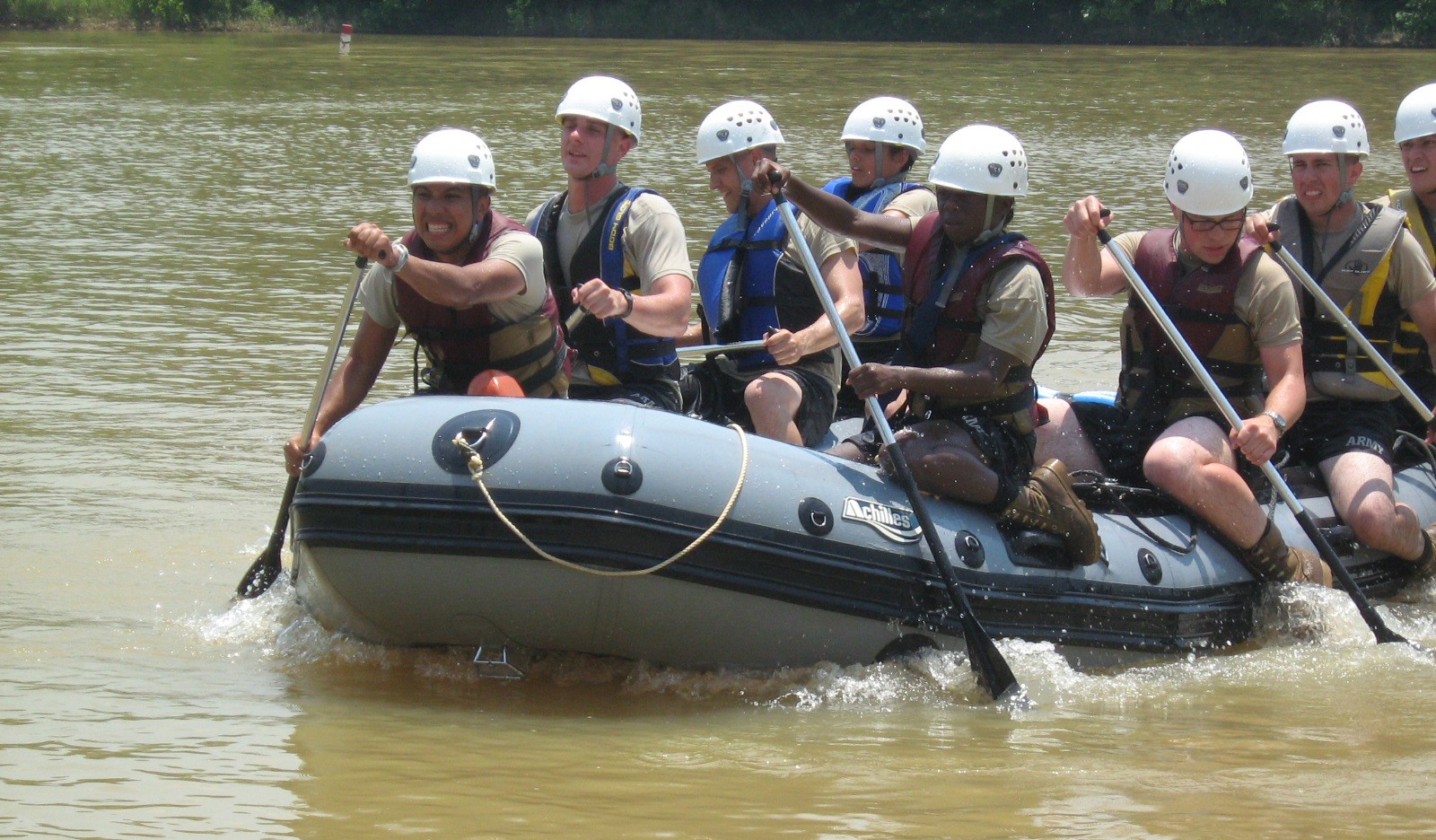


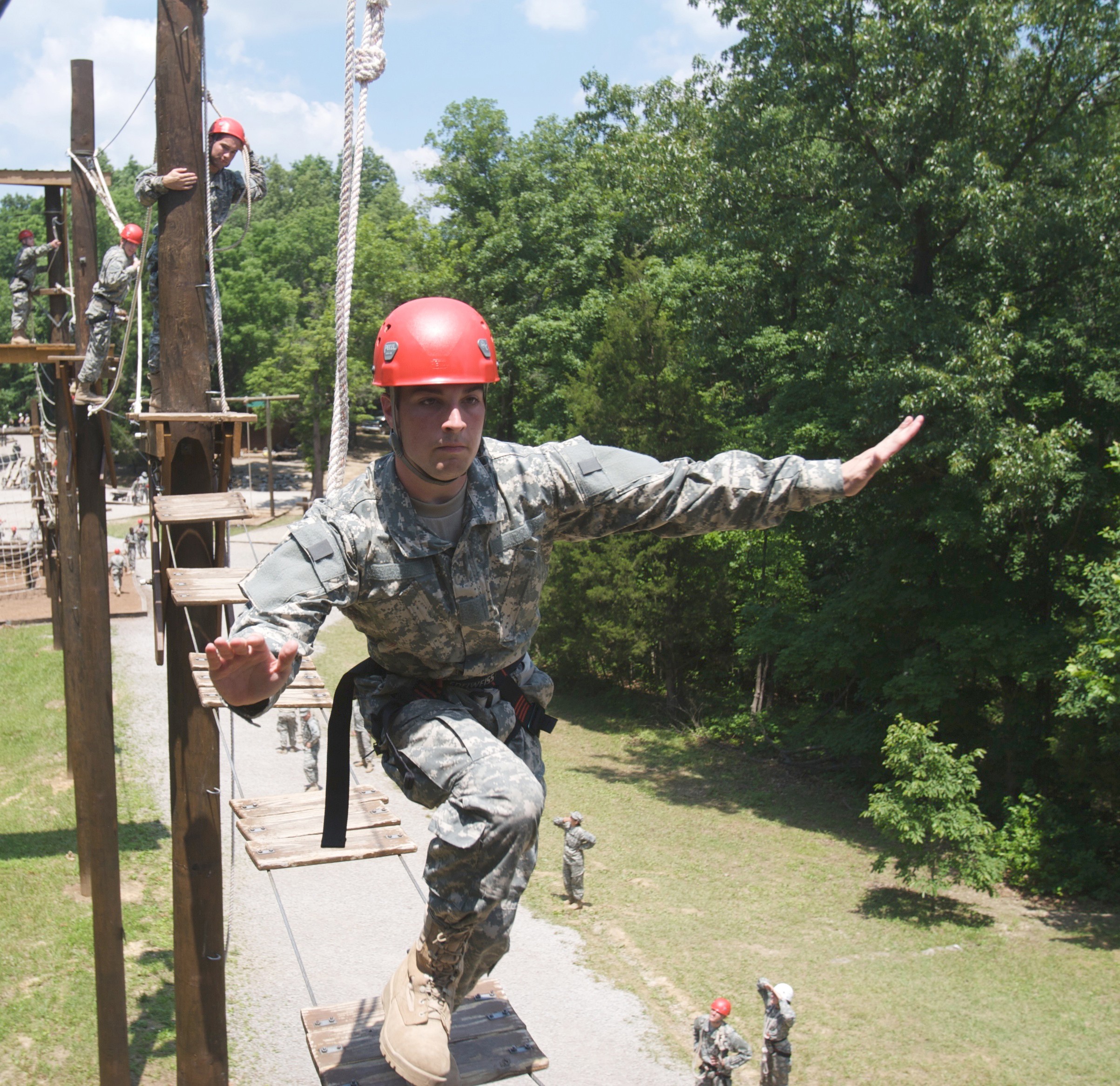
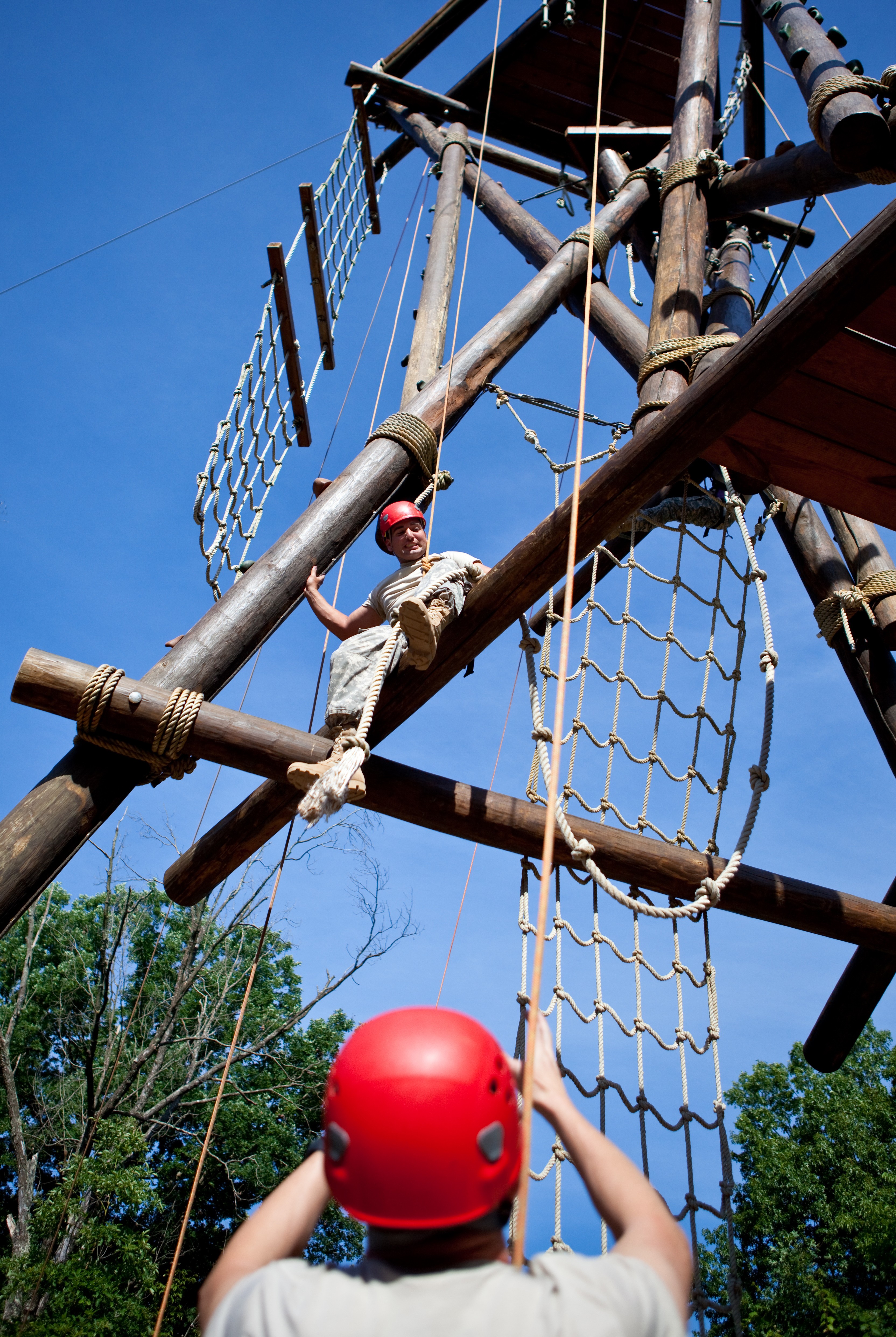
Social Sharing